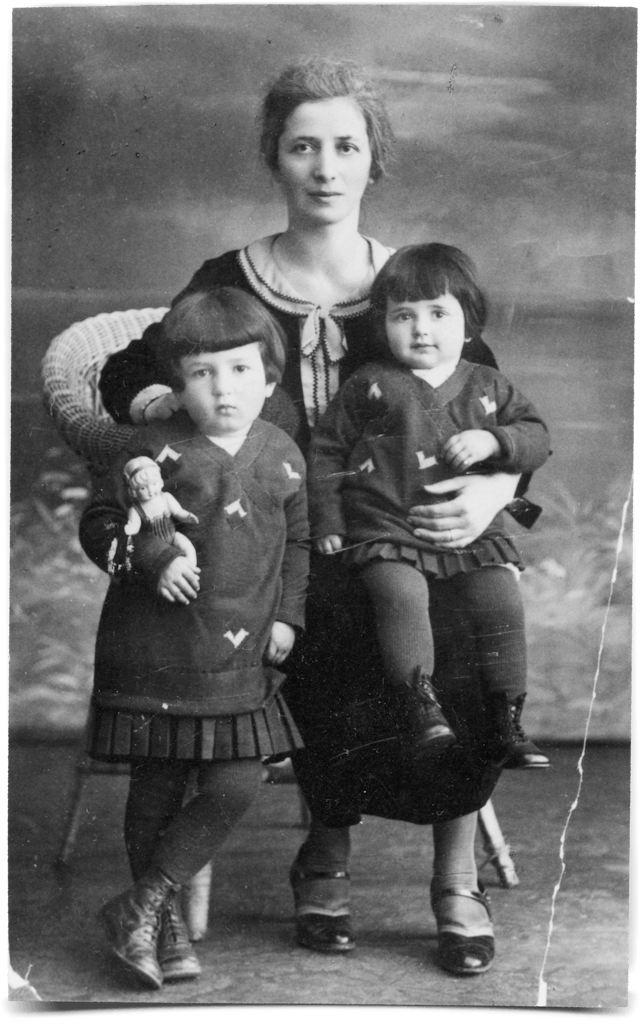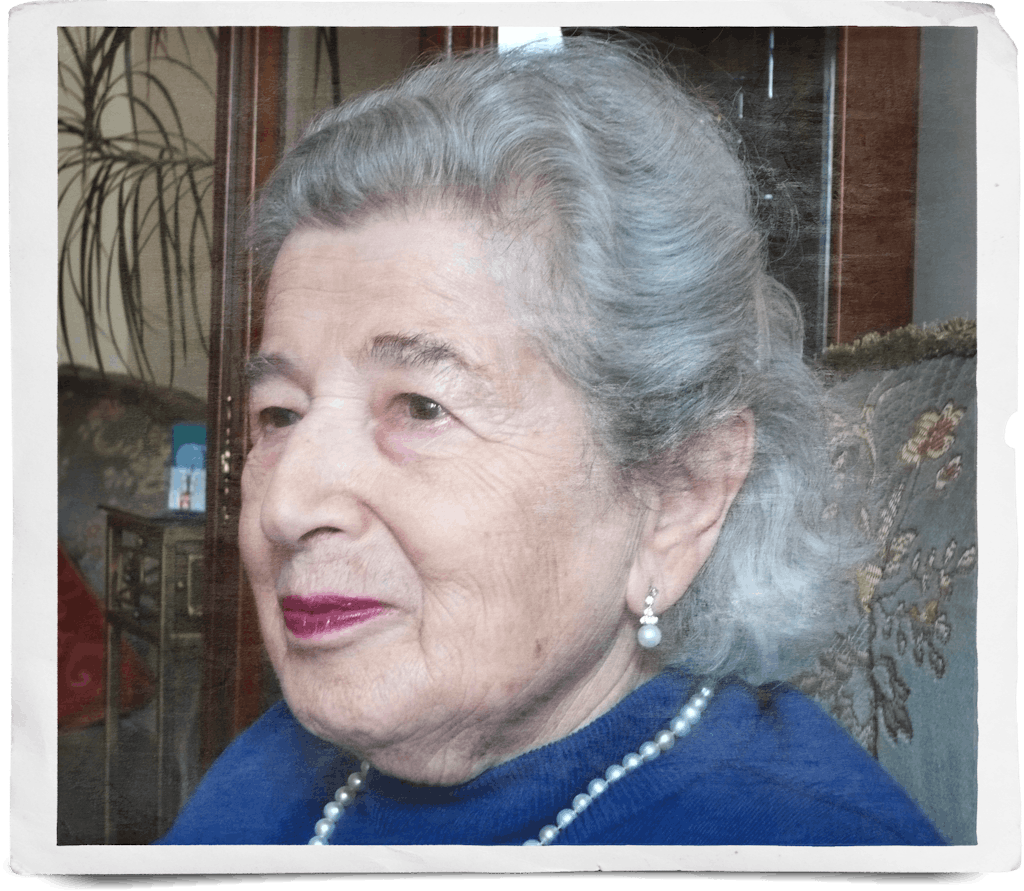Edith Goldberg
Edith was born into a Jewish family in a small German village. Edith and her younger sister came to England on a Kindertransport to escape Nazi persecution.
“I was lucky. Maybe that’s why I am how I am, because a lot of children weren’t as lucky.”


Edith was born in Kaiserslautern in southwest Germany in May 1928. She grew up in the tiny village of Teschenmoschel, which had a small Jewish community with a synagogue and a Jewish cemetery. Her family were farmers and ran a small dry goods store. Edith had a sister, Irmgard, who was two years younger.
Edith had a happy childhood with her parents and sister, playing with friends, haymaking in the summer and tobogganing in the winter, and participating in traditional village customs.
After Hitler came to power in 1933, life began to change for Edith’s family. Her family’s small shop eventually had to close because people would no longer buy from Jews. Many of the local Jewish villagers emigrated, but Edith’s mother was responsible for elderly relatives living nearby, which made leaving hard to consider.





During the Reich’s nation-wide pogroms known as Kristallnacht in November 1938, Edith’s synagogue was stormed, vandalised, and looted; ritual objects were thrown out, loaded onto a horse-drawn wagon, and burned just outside the town. Plain clothes officers arrested Edith’s father and uncle in the middle of the night. Her father and uncle returned from Dachau after two or three weeks of imprisonment. They were changed by their experiences, and were reluctant to discuss what happened.
After Kristallnacht, Edith’s mother contacted the Jewish Refugee Committee in England, which managed to find two families in Leeds, living next door to each other, who were willing to take Edith and her sister as refugees under the new Kindertransport scheme.

Edith’s parents took Edith, now aged 11, and her sister, aged 8, to Frankfurt to join the other Kindertransport children. The young girls were put into the care of two 16-year-old girls and were allowed one small case between them. Edith remembered her mother crying and her father looking stern. Edith had a doll and both she and her sister had little rings, along with a tiny necklace that Edith’s mother had given her. She kept these well-hidden, which was fortunate as Nazi officials searched their case for any valuables.
The children took the overnight ferry from Rotterdam to Harwich in England. Edith had never been on a boat or even seen the sea before and, despite the calm crossing, was very seasick.
At Harwich, Edith and her sister were met by two ladies who accompanied them to Leeds to meet their new foster parents. Edith lived with the Craskins, and her sister lived next door with the Bloomfields. Three days after their arrival, they started at Cowper Street School. The girls couldn’t speak any English, but quickly learned.


“I was very lucky… The whole family took me in as a part of the family, not just them, all the cousins and everybody, and I’m still very friendly with them.”
Edith later reflected that she found a good foster family who treated her the same as their own three daughters, who were slightly older than Edith. Unfortunately, Irmgard was less happy and went to live with cousins in Belgium after the war.
At the age of 14, Edith left school to work at Schofields, a prestigious department store in Leeds. Her naturalisation application was sponsored by Mr Schofield, the store owner and a local magistrate.
Edith met her future husband, Jack, when he was home on leave from the army and they were married in 1951. Together they opened a traditional Jewish provisions store in Leeds, which became a popular community hub.
Edith returned to her home village in Germany on several occasions but was not able to discover many details about her family’s fate. Her parents were transported, along with her father’s brother and sister, to Gurs internment camp in France on 22 October 1940. Edith’s parents were able to write to her and her sister until they were deported to Auschwitz-Birkenau in 1942, where they perished.



Later in life, Edith became an active member of the Holocaust Survivors’ Friendship Association. She spoke to schools about her experiences, particularly to children who were the same age as she was when she left her homeland. She sadly passed away in 2013, and is survived by her two children and grandchildren.



Can you help us?
Without the work of charities like ours, stories like Edith Goldberg's will be lost and forgotten. Please donate generously to ensure that Edith's story can a force for good in the modern world.
- £
